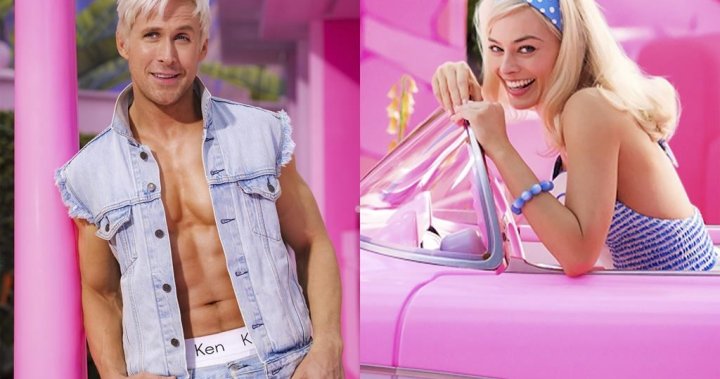
‘Barbie’ movie: Can viewers look beyond Barbie’s problematic past?
Global News
The 'Barbie' movie is the hype of the year, but some people still struggle with Barbie's scandal-ridden history.
To say that Barbie has become ubiquitous is not an understatement.
We’re just short of the Barbie movie hitting theatres (July 21) and it’s been a non-stop Barbie blitz. The trailers for the film have sparked endless memes, parent company Mattel has partnered with more than 100 brands to market the movie, and embracing of the film’s aesthetic has caused #Barbiecore to trend for months on social media.
It’s becoming clear that the Barbie movie will likely be a raging success.
Even if one were to set aside the star-studded cast (Margot Robbie, Ryan Gosling, Simu Liu, etc.) and big-name director (Greta Gerwig), the intense and over-the-top Barbie bombardment for the past six months shows no signs of slowing down, and most people seem to be more amused than fatigued by the piling on of pink.
But dark shadows linger over the Barbie brand, and some are baffled as to why the world is so willing to look beyond the doll’s problematic past and gaze at Mattel’s onslaught through rose-coloured glasses.
The problems for Barbie started right out of the gate.
The first iterations of the doll’s design in 1959 were inspired by the Bild Lilli doll – a racy, buxom doll marketed to German men and sold in adult stores. In her origin as a cartoon strip character, Lilli was known to be a gold-digger with an oversized bust and was often portrayed in sexy clothing, giving snappy comebacks to drooling men.

 Run 3 Space | Play Space Running Game
Run 3 Space | Play Space Running Game Traffic Jam 3D | Online Racing Game
Traffic Jam 3D | Online Racing Game Duck Hunt | Play Old Classic Game
Duck Hunt | Play Old Classic Game